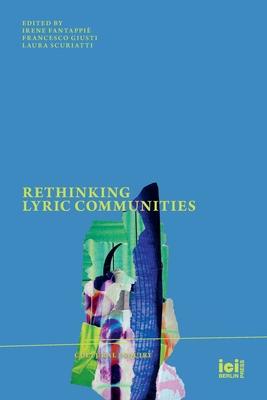In contemporary Western societies, lyric poetry is often considered an elitist or solipsistic literary genre. Yet a closer look at its history reveals that lyric has always been intertwined with the politics of community formation, from the imagining of national and transnational discursive communities, to the use of poetry in episodes of collective action, protest, and social resistance. Poetic forms have circulated between languages and traditions from around the world and across time. But how does lyric poetry address or even create communities - and of what kinds? This volume takes a global perspective to investigate poetic communities in dialogue with recent developments in lyric theory and concepts of community. In doing so, it explores both the political potentialities and the perils of lyric poetry.

Rethinking Lyric Communities
In contemporary Western societies, lyric poetry is often considered an elitist or solipsistic literary genre. Yet a closer look at its history reveals that lyric has always been intertwined with the politics of community formation, from the imagining of national and transnational discursive communities, to the use of poetry in episodes of collective action, protest, and social resistance. Poetic forms have circulated between languages and traditions from around the world and across time. But how does lyric poetry address or even create communities - and of what kinds? This volume takes a global perspective to investigate poetic communities in dialogue with recent developments in lyric theory and concepts of community. In doing so, it explores both the political potentialities and the perils of lyric poetry.